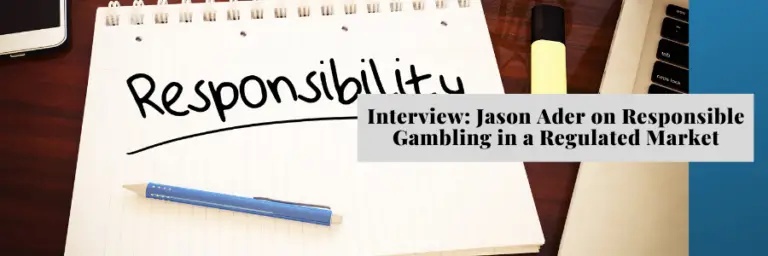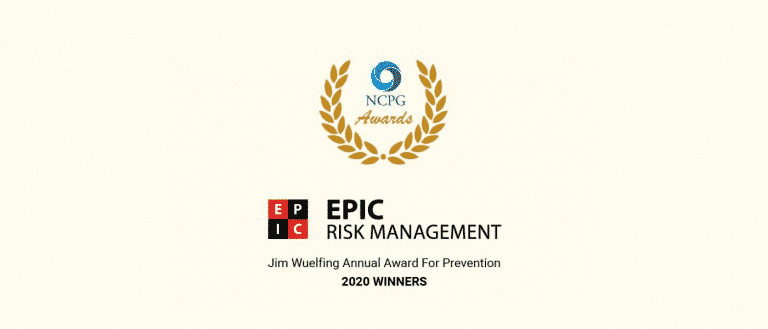US Sports Betting Needs Stricter Licensing Standards

This is Part 2 of our two-part interview with Smarkets CEO Jason Trost. In Part 1, the conversation focused on Smarkets experience in the US. In this installment, Trost offers up his opinions on the possibility of offshore sports betting operators entering the legal US sports betting space.
Professional Sports Leagues Cozy Up to Offshores
Steve Ruddock: I want to shift gears and discuss your tweets from a couple of weeks ago pertaining to the partnership between BetCris the NFL. You took the leagues to task for partnering with offshore books. Could you just unpack that a little bit?
Jason Trost: Offshore books have been blatantly violating the law for some time, and either the DOJ doesn’t have the resources, or it’s too hard to do extradition and whatnot with these countries.
Even though these companies have successfully escaped prosecution, that doesn’t mean that they’ve stayed clean. And the fact that the NFL has announced a deal with one of these entities doesn’t sit well with me.
I’ve been following the NFL for, I don’t know, 20, 30 years. And the NFL has really cultivated an image of being family-friendly and clean. Even though some of it’s just marketing, they spent so much time and energy trying to be a Disney version of sports that tries very carefully to make it a family-friendly brand, the fact that they would do a deal with an offshore book really surprised me. I don’t understand it, since the NFL clearly doesn’t need the money.
I don’t understand why they would take that action, and I think it was a big mistake for the NFL to do that.
A Future Where Offshores Receive Licenses?
Steve Ruddock: Do you think these deals have the capability of cleaning up those sports betting brands, and in effect, prepping them for entry into the legal US sports betting market.
Jason Trost: I’m sure they’re trying to do that, but in my opinion, companies like BetCris can’t be cleaned up. But who knows, maybe they can?
This is not my area of expertise, but from my perspective as an industry insider, I don’t think that Cris should be allowed to go into the United States. For that matter, I don’t think that Bet365 or GVC should be allowed entry either, considering their exposure to grey markets.
Steve Ruddock: Suitability is often at the judgment of regulators…
Jason Trost: Ultimately, criminals can use offshore books as a vehicle for money laundering and surrounding that there will be other financial crimes being committed too. Like wire fraud, bribery, and whatever else it may be. The fact that we aren’t currently seeing prosecutions for these things doesn’t mean they aren’t happening.
Just the other day, there was a major report that banks are allowing criminals to launder money. And there’s a lot of money laundering going on with these offshore and, sometimes, onshore bookmakers. The crime is still being committed, so for whatever reason, regulators are turning a blind eye to this, and I think at some point, the chickens will come home to roost.
Offshore Books Have an Unfair Advantage
Steve Ruddock: Do you, as a sports betting operator doing things “the right way,” feel disadvantaged? Do operators pushing the envelope or outright flouting laws have a unique advantage that operators like yourself don’t have?
Jason Trost: Well, anytime you’re doing something illegally, the main reason I imagine is to make more money. Anytime you’re making more money, or in a market that other people can’t legally operate in, of course, it’s advantageous. Otherwise, you wouldn’t be doing that activity.
In the case of 5Dimes and Cris, who knows how much money they’ve made in this market without restrictions. And it also gives them an advantage over other by-the-book operators in these markets.
Steve Ruddock: So how should regulators handle this in your opinion? Is it a zero-tolerance policy?
Jason Trost: I think the first step is probably some kind of prosecution. Again, I’m not a lawyer, and this is way out of my depth, but if offshores went through a criminal process, went through court and were charged with crimes, and either successfully or unsuccessfully defended themselves and paid fines or whatever the case may be, then I think after they’ve done their penance, it’s probably fair for them to have access to the legal US market. I don’t think it’s right for them to skip the penance step.
An Example from New Jersey
Steve Ruddock: In New Jersey, online gambling affiliates were given a bright-line date to comply with DGE requirements. Even if a company had a history of promoting illegal sportsbooks, they were considered suitable if they stopped by a specific date. Would that be acceptable to you? Or is that not far enough for operators?
Jason Trost: To me, what the regulator said has nothing to do with the crimes that have been committed. I don’t think that the DGE is responsible for the prosecution of financial crimes. Correct me if I’m wrong, but I would imagine that’s more of a district attorney jurisdiction. I think it exceeds the DGE’s remit.
I would urge New Jersey, other states, and the federal government to prosecute these companies for targeting US citizens. And then once it goes through that process, I think they should be capable of entering the industry.
But what I also don’t understand is to get a license, you have to go through a forensic audit. The amount of data that I have to share with the DGE and all these other places is insane. And I don’t understand what they’re looking for? If they’re not looking for all the things I’ve mentioned operators are engaged in, what’s the point of all of this? Allowing bad actors access kind of makes a mockery of what they’re trying to do if they’re letting all these people in that have no business being in New Jersey. The fact that they [companies operating in unlicensed markets] were able to get their license really surprises me.
The Most Important “Fix” for the US Sports Betting Market
Steve Ruddock: Is there anything you think people should know about operating in the US?
Jason Trost: I think if I could do one thing, I would liberalize the market so that anybody could enter. Anybody can pay their fee. Anybody can go through due diligence. And anybody can pay taxes.
I think that’s the single greatest thing that we could do in the United States and make this a clean, open industry.
If that were to occur, these offshore books wouldn’t survive. The innovation and startups and all those kinds of things would run circles around these offshore books. That’s the capitalistic way to clean up the industry. I think it’s a long shot because of lobbying and entrenched interests and all those kinds of things, but I think if I could do any single thing, it’s liberalizing the market.







